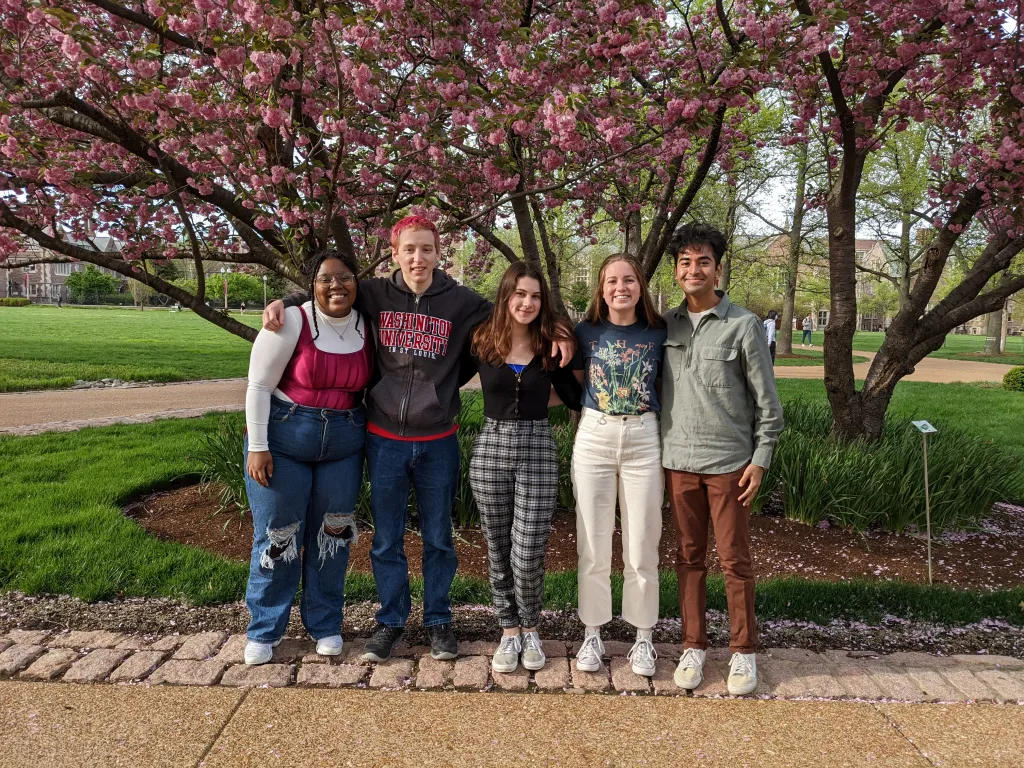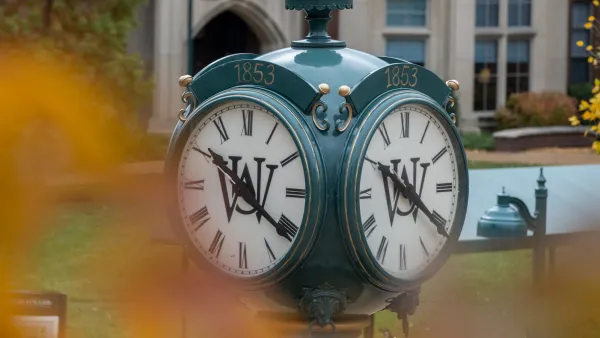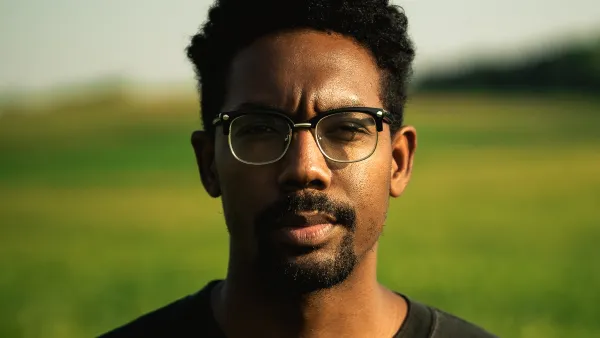Seven sophomores join the competitive Merle Kling Undergraduate Honors Fellowship
With the start of the new academic year, the Merle Kling Undergraduate Honors Fellowship welcomes its 2022–24 cohort. Over the next two years, seven new fellows from the WashU Class of 2024 will pursue their own independent research projects in the humanities or humanistic social sciences, explore the public dimensions of humanistic work and enrich the intellectual life of the Center for the Humanities.
[Read more about the fellowship and its goals: Research, revise, repeat: Training the academy’s next scholars]

Mary Rose Bell (English and Philosophy-Neuroscience-Psychology majors) plans to investigate the entangled relationship between fictional narrative and self-narrative, specifically literary representations of the self and identity construction, focusing on Virginia Woolf’s autobiographical and semi-autobiographical work.
Julia Cleary (Political Science major; Religion and Politics minor) will focus on studying the evolution of jury standards in U.S. history and the cultural components that drove these changes, with a particular view of three periods of time: the founding of the United States, late 1800s and present day.
Kayla Harrington (Psychological & Brain Sciences major; Legal Studies minor) will look at the adultification and sexualization of Black girls during two distinct periods: the legal duration of slavery in America, 1619-1865 and the last 30 years, 1990-2020.
Dylan Maya-Tudor (Global Studies major) will analyze Vietnam’s solidarity with Latin American revolutionaries during the Cold War, particularly Vietnam’s relationship with various guerrilla organizations including Colombia’s FARC and El Salvador’s FMLN as well as successful revolutionary movements like Nicaragua’s Sandinistas. He will also examine the close revolutionary cooperation between Vietnam and Cuba.
Omaer Naeem (Global Studies major; South Asian Languages & Civilizations and Asian American Studies minors) will explore what the Pakistani state defines as Sufi, the relationship between both the created identity and the state at large, and the space Sufis occupy in popular Pakistani culture and consciousness, contemporarily.
Nash Overfield (African and African American Studies major; Women, Gender and Sexuality Studies minor) will examine the historical connections between Pan-Africanism and organized labor, covering the period from the First Pan-African Congress in 1919 to the mid 1960s, as African nations gained independence.
Violet Walker (English and Women, Gender and Sexuality Studies majors) will study Black trans TikTok creators in order to analyze how Black trans people construct their bodies against and in relation to hegemonic bodily discourses.



